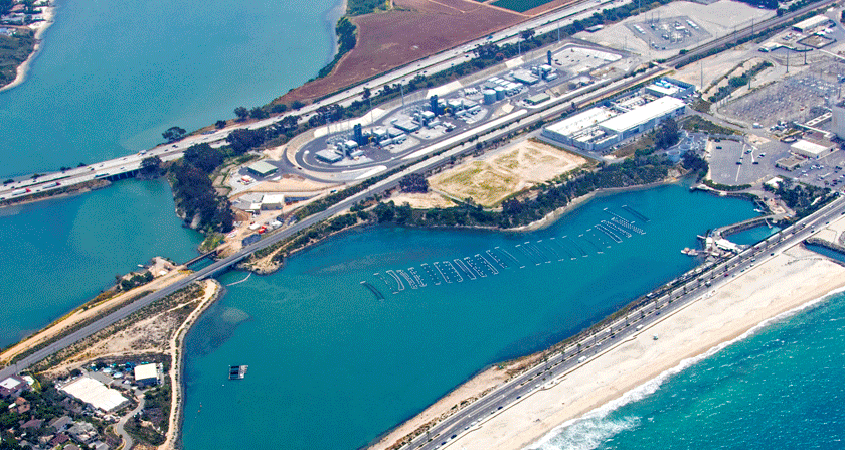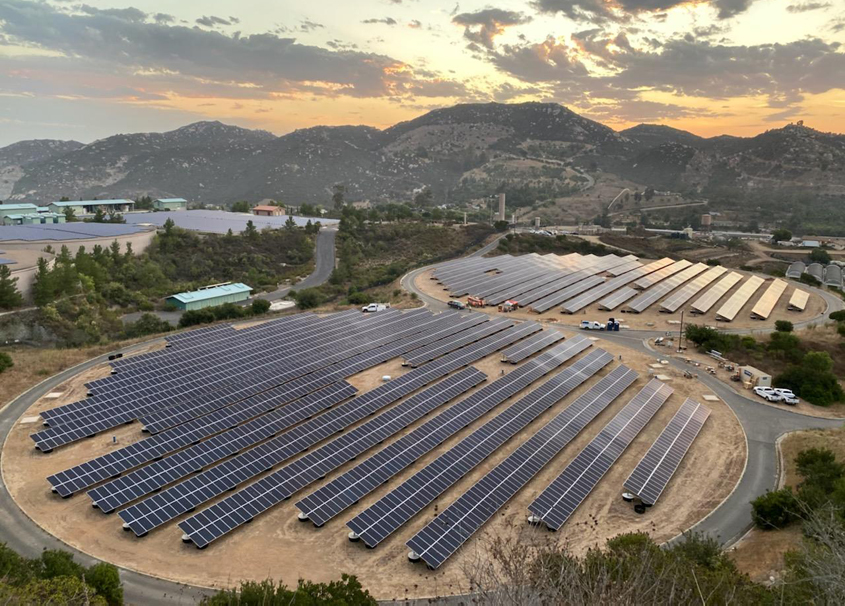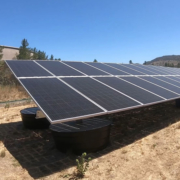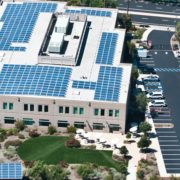The Water Utility Climate Alliance has added the Water Authority’s efforts to reduce greenhouse gas emissions to its mitigation case studies library. The case studies provide valuable information and inspiration for greenhouse gas mitigation or sewage thermal energy use projects from concept to implementation for water utilities across the U.S.
Water Authority Senior Water Resources Specialist Goldy Herbon said case studies are developed in partnership with WUCA. Contacts are provided in each case study to facilitate follow-up and enable interested readers to learn more. WUCA recognizes the importance of greenhouse gas mitigation as a key climate adaptation strategy and an issue of climate leadership in the water sector.
“By sharing our efforts and experience in GHG reduction with our peers across the U.S., we hope to set an example for other industries and business sectors, leading to even more mitigation efforts,” said Hebron. “The case studies are by no means an exhaustive list, but it is a great starting point for water utilities exploring the potential of implementing their own GHG mitigation projects. Additionally, WUCA is open to adding more GHG projects to its roster.”
The Water Authority greenhouse gas mitigation case study is on WUCA’s webpage.
The Water Authority installed solar panels at three locations in 2011: its Kearny Mesa headquarters and Escondido operations center; and the Twin Oaks Valley Water Treatment Plant.
Energy generated by the solar power systems reduces the Water Authority’s energy costs as well as GHG emissions, making agency operations more efficient for water ratepayers. Combined, the solar power systems will reduce the agency’s energy expenses by nearly $3 million over 20 years. The solar power systems were installed at no cost to the Water Authority through a 20-year power purchase agreement with CleanCapital.
Carlsbad Desalination Plant also listed

Claude “Bud” Lewis Carlsbad Desalination Plant. Photo: Poseidon Water
The Claude “Bud” Lewis Carlsbad Desalination Plant, which supplies nearly 10% of San Diego County’s drinking water, is also featured as a case study. The plant’s energy recovery project, part of its High-Energy Efficiency Design, uses state-of-the-art pressure exchanger technology to recover and reuse a significant portion of the energy from the reverse osmosis process.
The Water Authority recently earned Climate Registered gold status from The Climate Registry for verifying and publicly reporting its greenhouse gas emissions. The effort fosters transparency for the agency’s climate mitigation initiatives and will help the Water Authority track and validate emissions reductions in the future.
The Climate Registry operates North America’s largest voluntary registry for greenhouse gas emissions. The Water Authority’s 2019 and 2020 inventories were verified and published in The Climate Registry’s public database in November, earning the agency gold status for both years.
The Water Authority first developed its Climate Action Plan in 2014 and updates it every five years. GHG emissions against a baseline and tracking progress toward State of California goals. Annual GHG inventories are provided to the board of directors.
Unique role in reducing greenhouse gas emissions

The Twin Oaks Reservoir dual solar array total production is roughly 3.6 mWh annually, enough to power 340 homes. Photo: Vallecitos Water District
The Water Authority’s GHG mitigation case studies offer crucial examples of progressive GHG mitigation projects at water utilities with lessons learned during implementation. The selection of case studies represents a wide range of project types (pump optimization, wind power, and battery storage) to provide a strong starting point for utilities to learn from each other. Many of the projects can be applied equally to wastewater and stormwater utilities.
Water utilities have a unique role to play in mitigating GHGs due to the high energy usage of the water industry and being a reliable purchaser of energy, as well as being a trusted leader for other industries and business communities. A key objective for WUCA is for the alliance to continue developing practical examples and case studies of climate adaptation and climate mitigation.
The Water Authority works with its 24 member agencies to deliver water affordably and efficiently across San Diego County, and the agency has championed energy efficiency and environmental sustainability for decades.







